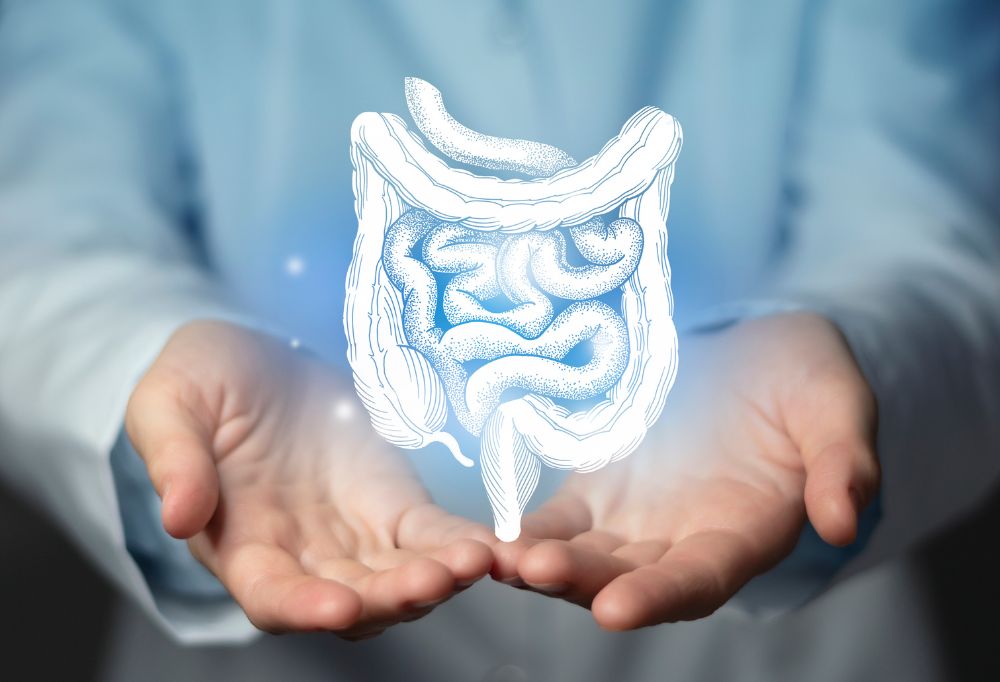Reviewed by Bruce Hamby, PA-C of Forum Health West Bloomfield
It doesn’t matter if you’re a man or a woman—everyone wants to feel their best. However, women, in particular, can face a unique set of challenges that inhibit them from doing so as they age and hit certain milestones in life.
When we say vitality, we’re specifically referring to the full scope of women’s health and wellness. There is a host of potential issues that can prevent your mind and body from functioning at their full capabilities. Offering long-term solutions that help women overcome these problems is our clinic’s goal.
With that in mind, we’re going to go over some of the most common complaints we hear about women’s health and vitality.
Changes During/After Menopause
Usually occurring at an average age of about 51, women go through a host of different symptoms and changes resulting from menopause. Not just physically, such as hot flashes bloating, breast tenderness, and vaginal dryness, but emotionally as well. Many women might experience depression and anxiety, changes in mood, or difficulty sleeping.
During this time, a woman’s estrogen and progesterone levels usually decline over a period of about 7 years or longer. Along with the decline of those two hormones, women also lose density in their bones and may experience weight gain because of fat cell changes.
These factors happening at once can take a toll on a woman’s physical and emotional wellbeing. Making matters potentially more stressful, women often have to balance factors like full-time careers, raising children, and caring for elderly parents. This added stress can exacerbate the changes they experience.
After 12 months without a period, we consider menopause “finished”. However, post-menopause also brings its own set of challenges. Some women experience symptoms for the rest of their lives. Furthermore, the lack of estrogen in the body can lead to potentially serious health concerns. Depending on a woman’s lifestyle, she may have an increased risk of heart attack, stroke, osteoporosis, and more.
Postpartum Depression
Postpartum depression can occur in women after childbirth, and the effects on physical and emotional health can weigh heavily. Sadness (also called “baby blues”) is one of many emotions that a woman can feel after giving birth, but postpartum depression occurs when the signs and symptoms last for a prolonged period.
These symptoms can vary widely, but some of the most common include:
- Depressed mood or mood swings
- Loss of appetite
- Fatigue and loss of energy
- Inability to sleep
- Thoughts of death or suicide
- Thoughts of harming yourself or your child
- Withdrawing from family and friends
- Anxiety and panic attacks
- And more
Postpartum depression might happen because of a variety of factors, which often come together to form a perfect storm. Estrogen and progesterone levels drastically decrease after childbirth, and when combined with a history of depression, lifestyle factors, and fatigue, it can lead to a prolonged depressive episode.
Obviously, these factors coming together can also take a toll on physical health as well. A lack of energy, loss of interest in activities, or loss of appetite may lead to substantial changes in the body. This can include both drastic weight changes and weakened bones or immune system.
The important thing to remember with postpartum depression is that it’s an issue that affects thousands of women nationwide. You are not alone and you certainly aren’t a bad person for experiencing this issue or for having the feelings that you have.
Loss of libido
A loss of libido in women can occur for a variety of reasons. Though we often associate low sex drive as a symptom of aging, the truth is that adult women of all ages can experience this issue. For instance, lifestyle factors such as diet, stress, depression, and relationship issues that can cause a drop in sex drive. These issues aren’t limited to age and can affect anyone.
That being said, age can also be a factor. One of the biggest reasons for libido loss is diminished hormone levels. As we discussed, hormone levels decrease with age and can drop even further both during and after menopause.
Issues can also occur as the result of physical problems. Women may experience a low sex drive if they experience vaginal dryness, an inability to orgasm, or if their partner has erectile dysfunction or difficulty ejaculating.
Common symptoms of libido loss include:
- Loss of interest in sex
- Lack of pleasure from sex or stimulation
- Little to no sexual thoughts or fantasies
- And more
Fatigue & Lack of Drive/Motivation
One of the biggest issues we see across the board as women age is a general lack of energy. Like with the other issues mentioned in this article, low motivation and energy levels are a telltale sign of a hormonal imbalance.
These issues are not only frustrating to deal with on a personal level, but they can also have a negative impact on other areas of life. People with chronic fatigue or lack of motivation may constantly go through the motions. Activities they once loved may now seem like a chore. They might withdraw from their families and friends. Getting through the workday might now seem like an impossible task.
Sometimes, a change in lifestyle may be enough to help reverse this trend. Healthier eating and exercise habits, getting enough sleep, and using relaxation techniques like meditation can often help. Also, treating underlying physical ailments with medical help may provide an additional boost.
Sometimes, the stresses of real-life problems can take their toll and these measures alone may not be enough. That’s where the professional team at Forum Health can help.
Get Lasting Solutions for Women’s Health
For women struggling with menopausal changes, postpartum depression, loss of libido, or fatigue, Forum Health provides a variety of treatments. Professionally trained staff supervise each plan and uniquely tailor your treatment to help you overcome your specific symptoms and issues.
Hormone Therapy
For hormone imbalances, our go-to treatment is bio-identical hormone replacement therapy (BHRT). This treatment helps increase overall wellness by using chemically identical hormones to what your body produces naturally.
Replacing your hormones with this method can provide you with more energy and vitality. It can also help ease some of the symptoms of menopause, low sex drive, low motivation, and postpartum depression. We achieve this by increasing the amount of vital hormones in your system, including estrogen, progesterone, testosterone, thyroid and more.
The HRT process starts by performing a full panel blood test in order to pinpoint the exact hormone deficiencies in your body. Then, after performing a one-on-one consultation, our specialists develop a customized treatment plan specifically for your needs.
Part of this treatment plan includes shipping medication directly to your residence and engaging in consistent follow-up appointments to ensure progress. After roughly 4 to 6 weeks, you should begin to see your hormones reach optimal levels.
Ketamine Infusions
Ketamine infusions can prove valuable for women dealing with postpartum depression and other struggles relating to mental health. Long used as an anesthetic, researchers have discovered the benefits of using ketamine to treat depression over the last 10 years.
What makes this treatment unique is its effectiveness. Often, we see patients at our clinic who have exhausted all options to help relieve mental health issues. With ketamine infusions, roughly 70 percent of people experience rapid results from their treatment.
Following an initial consultation to better understand your symptoms, we’ll initiate a plan of about 6 total treatments over the course of 2 to 3 weeks. The treatment usually lasts about an hour, and the dosage you receive will depend on your unique needs. Treatment is also generally pain-free, with many patients describing the process as a relaxing experience.
Though each treatment is incredibly precise and generally very effective, ketamine infusions aren’t for everyone. Our team will work with your primary care provider to ensure that these treatments are safe for you.
Each of these treatments is performed in a comfortable, welcoming environment by an experienced professional. The length and duration of your session will depend on your treatment. The best part about these treatments is that not only are they effective, but we can also perform them on women of all ages!
Women’s Sexual Health
Finally, for women struggling with their libido and sexual health, Forum health offers a variety of treatments for natural sexual enhancement. Click here to view our treatment options.






